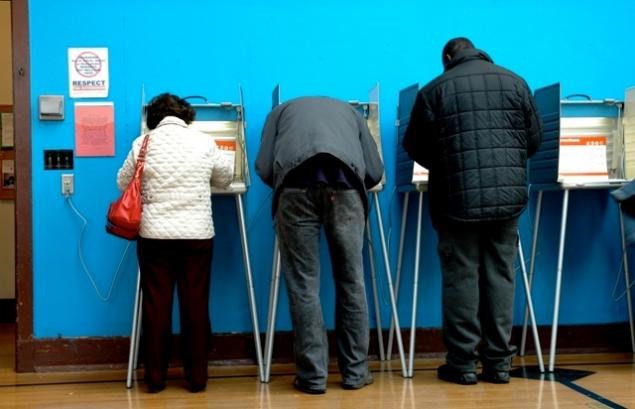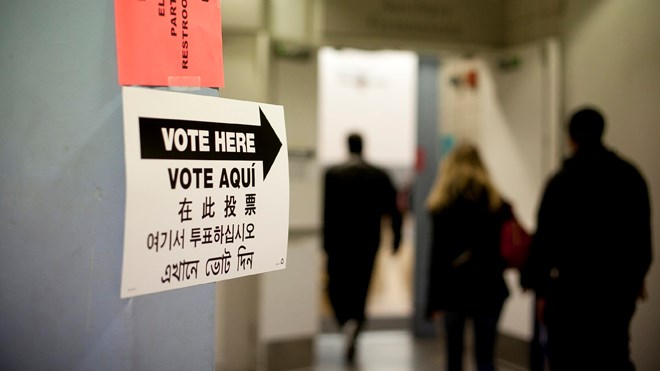
As the dust settles on New York's recent presidential primary, politicians and community members have already begun putting pen to paper in order to solve issues that residents had with certain polling locations. According to a recent article, Assemblymember Rodneyse Bichotte introduced two bills on April 27th that would effectively ensure that thousands of Haitian Creole speaking voters would have the tools necessary in order to exercise their vote.
"This past Tuesday, in New York State's presidential primary we saw hundreds of thousands of voters disenfranchised, but this is the reality for the tens of thousands of Haitian Creole speaking voters every election cycle," said Bichotte. "The time for good governance is now in order to make the electoral process better for everyone, including new Americans, senior citizens and new young voters."
The two measures, A9727/S7241 and A9729/S7240, were introduced on the Senate side effectively guaranteeing that all necessary voting materials will be translated into Haitian Creole while poll sites will offer interpreters for residents who require this type of assistance. While the measures sound specific in nature, the reality is that these measures would take place in areas where Haitian voting residents make up about 5% of the population in an Election District.
The strong push for reform and more effective poll locations comes after a huge debacle attributed to the Board of Elections where thousands upon thousands of Brooklyn voters were purged from the voting system just days before the New York primaries. In the past, these Haitian voters have been accompanied by English speaking friends or relatives as they attempt to exercise their voting rights. Poll workers often avoided assisting these types of voters due to language barriers and a fear that they might influence someone's vote.
"As a newly elected district leader in 2010, I approached the Board of Elections on this issue and was denied of pursuing or changing the law," said Bichotte. "I was told that it was just 'the status quo'. I want to see this change, and therefore I join hands with other colleagues such as City Councilmember Mark Treyger, State Assemblymember Pam Harris, and State Assemblymember William Colton who have been real champions for pushing interpreters for the Russian speaking population in Brooklyn."
In a country that employs advanced technology and sincere efforts to include those who are often silenced, it can be difficult to understand how so many voters are left out of the loop. With new initiatives and elected officials who have first hand experience in the community, there's no telling how beneficial these reforms will be in the fast approaching presidential election.




